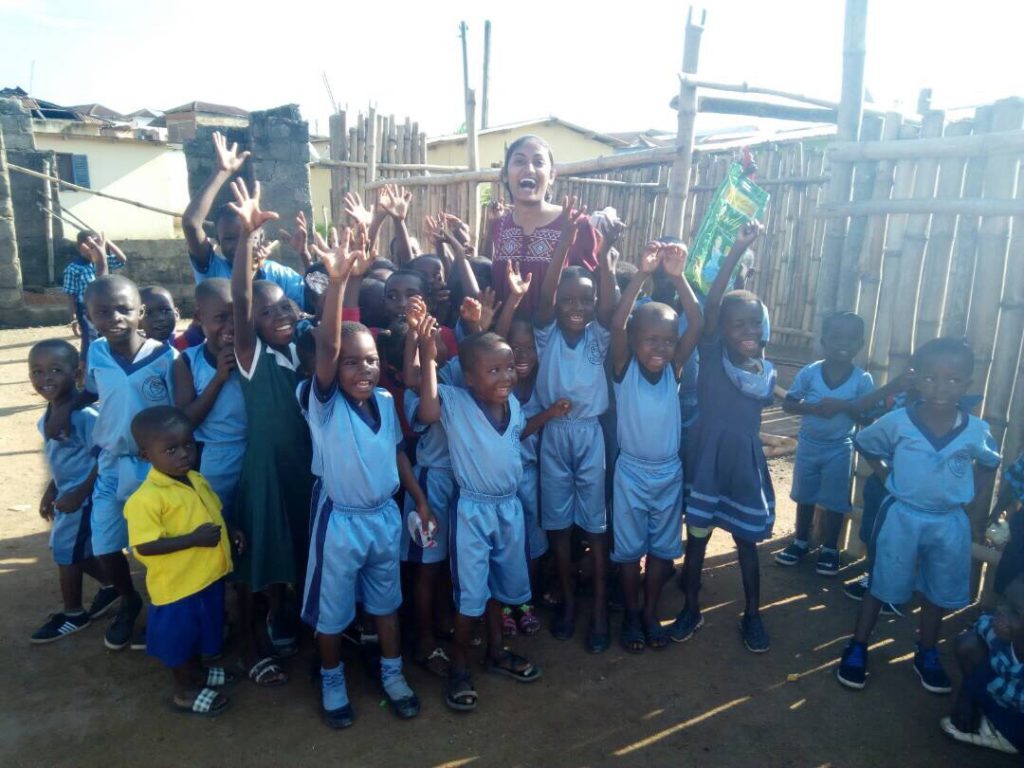In late 2016, ISF began a partnership with a nonprofit organization in Ghana called Campaign for Learning Disabilities (CLED). Through this partnership, ISF has been able to introduce educators across the country to information about Irlen Syndrome and how to remedy the condition. As a part of this awareness and training program, program volunteers at CLED gathered data on the incidence of Irlen Syndrome in the country of Ghana. Pooja Santapurum, a senior neuroscience major at Vanderbilt University, headed up this incidence project. We asked Pooja to share with us about her experience in Ghana this summer, and tell us what she learned about Irlen Syndrome in that region.

The first school I visited was St. Mary’s Basic School. Walking into the very dimly lit classroom, I saw a sea of blue. Each student was wearing his or her royal blue uniform impatiently waiting for class to begin. What stood out the most, however, was the sheer number of students that were squeezed into such a small space. There were roughly 80 students seated in this classroom, some students practically sitting on top of each other. But this was their norm. In the U.S. a classroom of this size would probably not seat more than 25 students. I knew that this sight would take some getting used to.
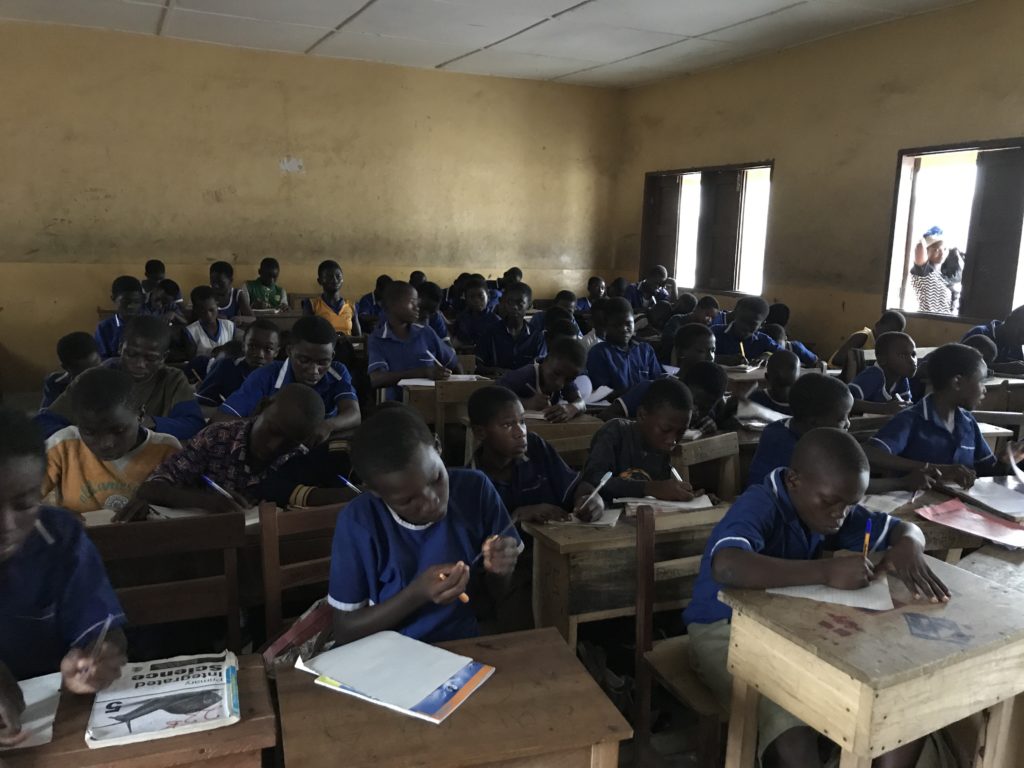
Within two days, I was able to visit 3 very different schools and collect data from all the 4th and 5th grade students at each of these schools.
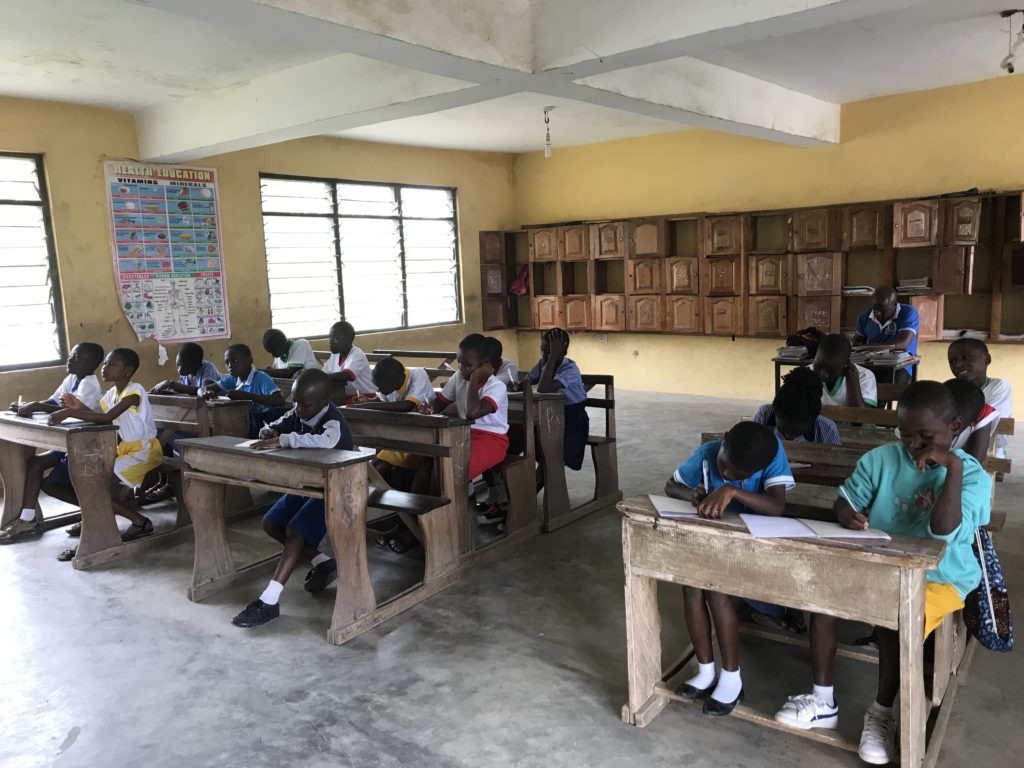
In hopes of determining the prevalence of Irlen syndrome in this region of Ghana, we began data collection with the administration of the Reading Strategies Questionnaire (RSQ), which gives as an idea of what symptoms of Irlen Syndrome are present among these students. More specifically, it assesses each student’s reading difficulties in addition to the amount of physical discomfort of the eyes or head he or she deals with. Though the RSQ only assesses risk, the data we have thus far is, in some ways, very surprising but perhaps expected due to the fairly high rate of Learning Disabilities in this population. Though our target population was 4th and 5th grade students, the age range within these two grades is much larger than I expected. There are students as young as 9, which isn’t unexpected, to as old as 16, which seemed fairly large to me.
For each classroom we entered, we handed each student a sheet of paper to record their answers to each of the questions on the RSQ. I would write on the board what demographic information (age, sex, grade, etc.) they needed to first write on the tops of their sheets of paper. The teacher or the CLED director would then read the questions from the RSQ aloud in front of the classroom, first in English and then furthering explaining the question in Twi to ensure that each student fully understood the question. Each student was able to answer with “Yes,” “No,” or “ST” which stood for sometimes.
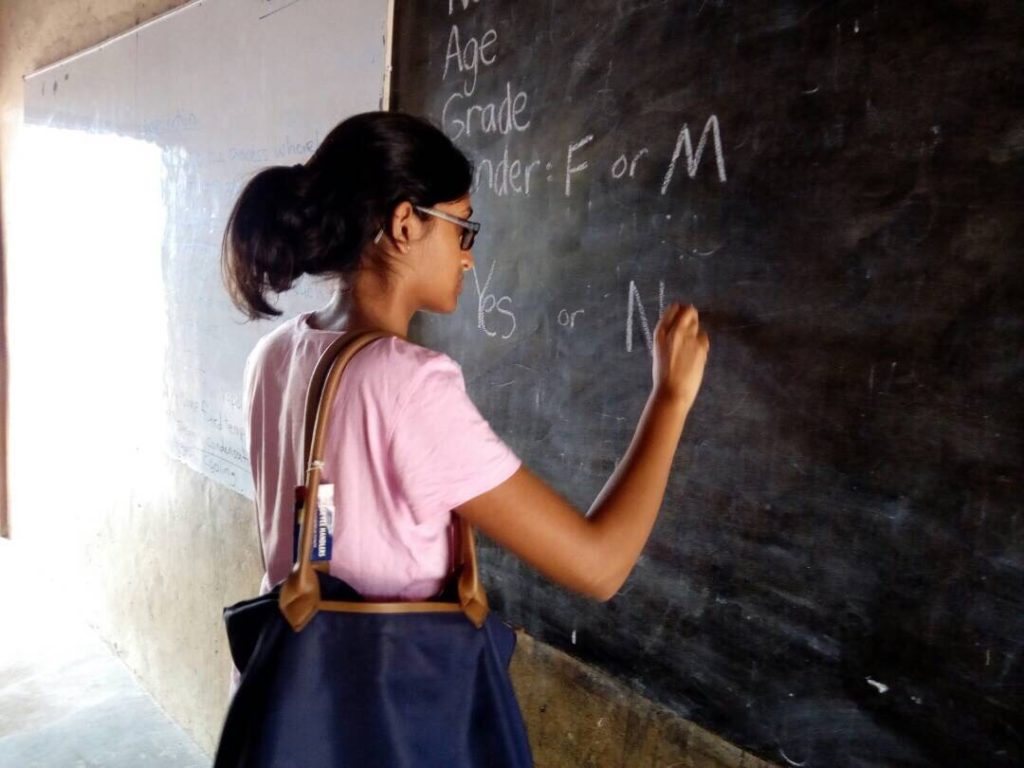
I interviewed a couple of teachers to better assess their perspectives on learning disabilities within the classroom and to get a better idea of how prevalent having a student with a learning disability was. The following are the questions I asked with the responses given by two different teachers as noted:
What percentage of your students do you think have learning disabilities?
R1: 30%
R2: 70%
How is your students’ academic performance compared to what you think it should be or to the national average?
R1: Average for this area.
R2: Not quite impressive; average for public schools but below average compared to all students in Ghana.
What are some common complaints you get from students with reading difficulties?
R1: that they can’t see the words in the board; they have headaches; sometimes they also complain of stomach pain.
R2: that they have visual impairments; many have “seizure disorder,” where it takes them time to pronounce words resulting in pausing when reading; the majority of students have not been taken through phonetics so they don’t have a basis for sounding out words; many don’t really complain because they fear being made fun of by their peers.
What do you think should be done to improve education for students with learning disabilities?
R1: start from the base; make sure that in teaching colleges, teachers are well prepared to handle such issues; have teacher trainings to educate teachers on how best to teach to students with learning disabilities; also, start at the base for learning to read by beginning with pronouncing different sounds and words when teaching reading.
R2: create a reading clinic environment or special schools for specifically helping students with such difficulties; have referral programs where students with reading difficulties are sent to special reading clinics located in central, community locations where they can get the specific help that they need.
Based on these two interviews alone, it is clear that not all teachers have a firm understanding of what it means for a student to have a learning disability (LD). Prior to interviewing these teachers, the knowledge I had been provided with was that the majority of students, especially in public schools, had some form of learning disability, which is really quite astonishing. It is also evident that not a lot has really been done in training these teachers on assessing students with LDs and teaching to students with LDs. I was told by the director of CLED that many of the students with learning disabilities not only fear being made fun of by their peers but also fear being made fun of or punished by their teachers. That is why CLED has fortunately begun pushing for more teacher trainings and parent trainings on what it means to have a LD and what methods can be used to allow for the most success for these students in an academic setting.
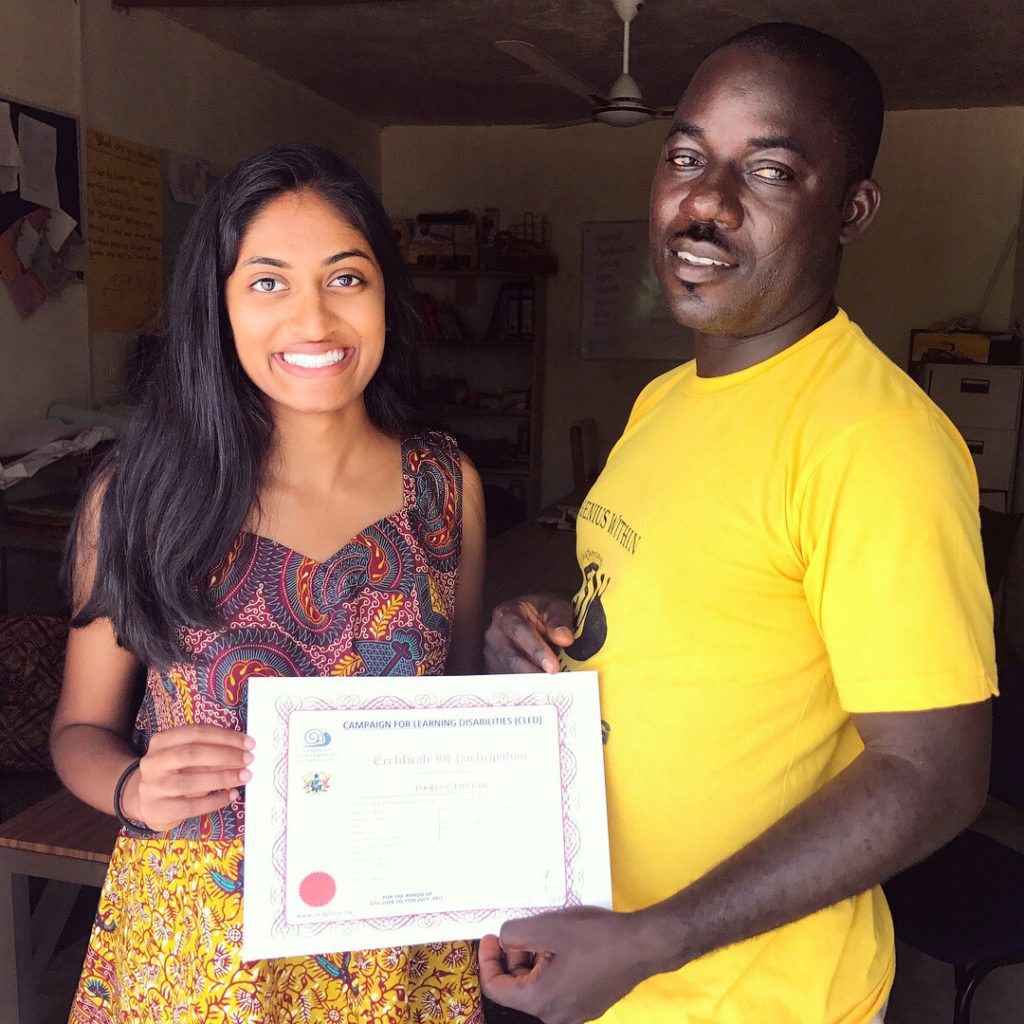
The ISF/CLED partnership is expanding this fall, when Irlen Diagnostician, Jeri LaVigne, will be traveling to Ghana to train all CLED staff as certified Irlen Screeners. Stay tuned for future updates and success stories from our friends in Ghana.


